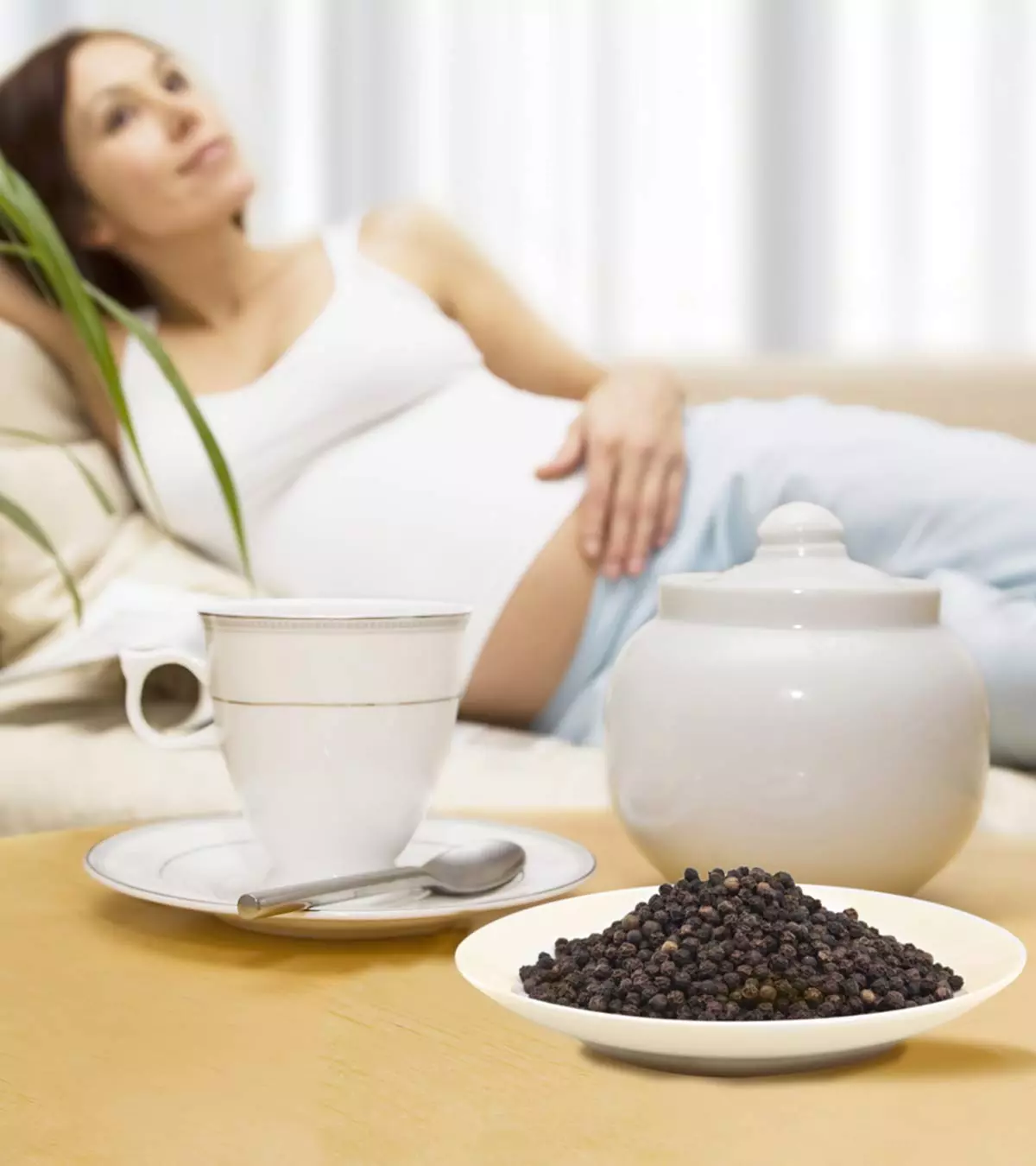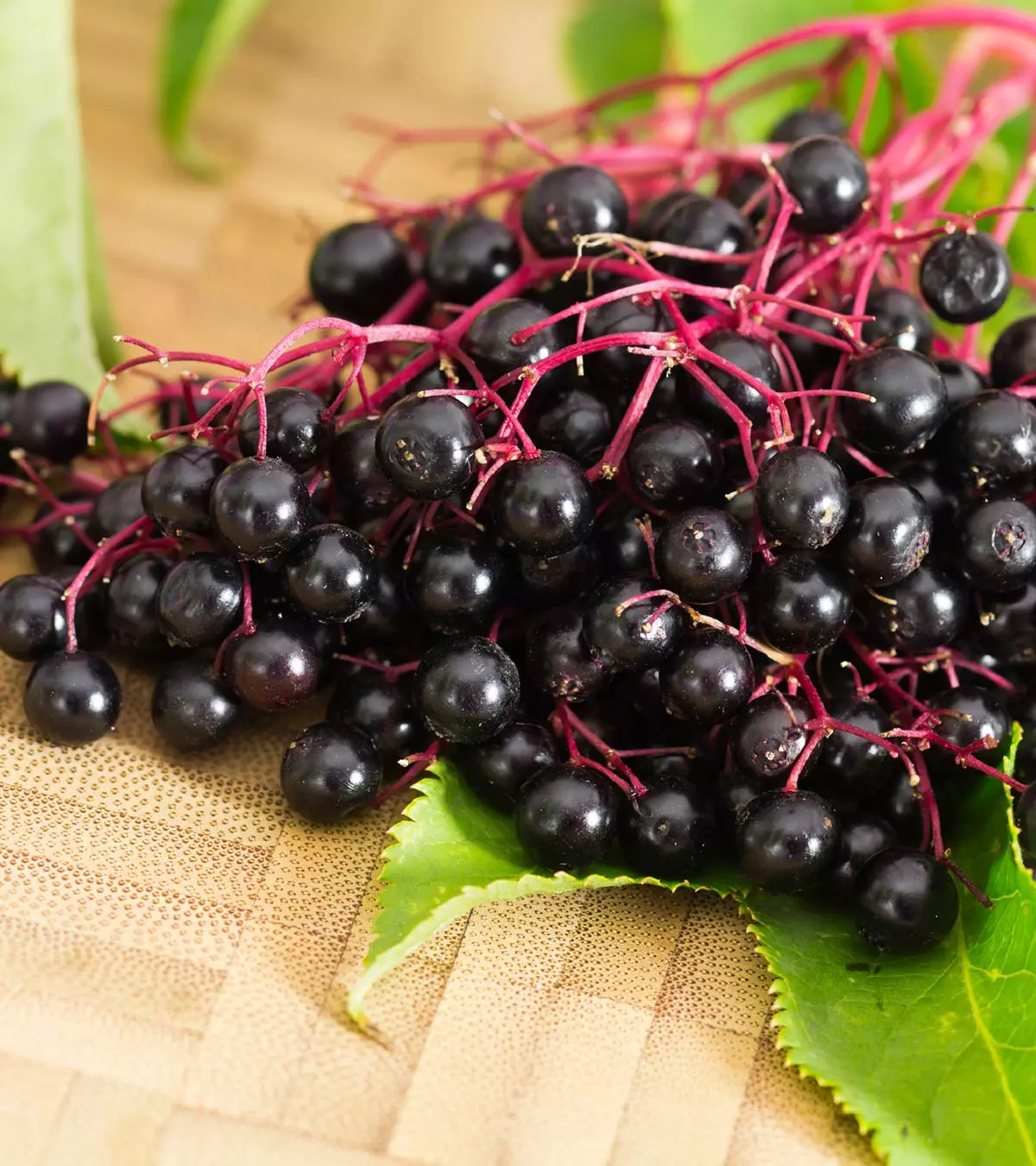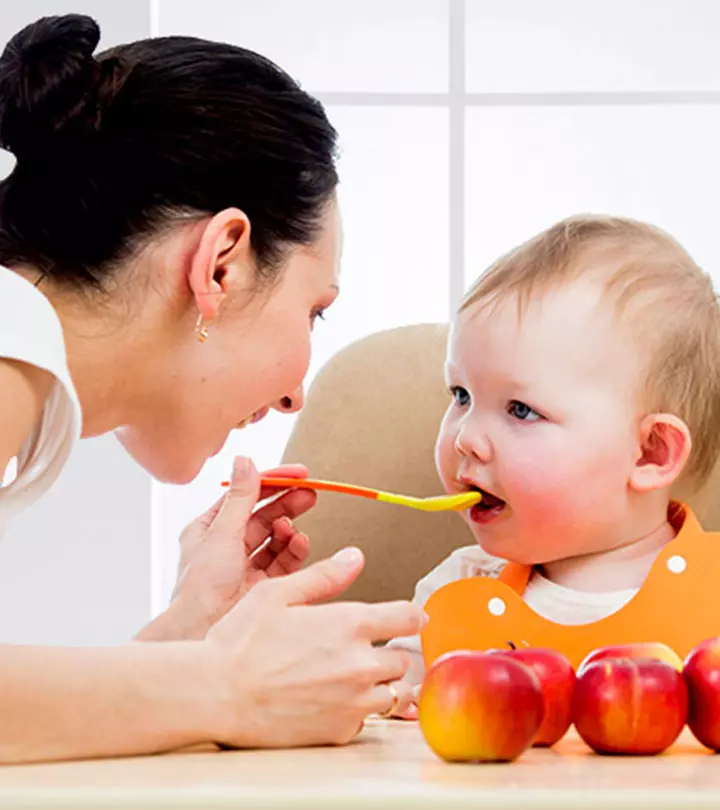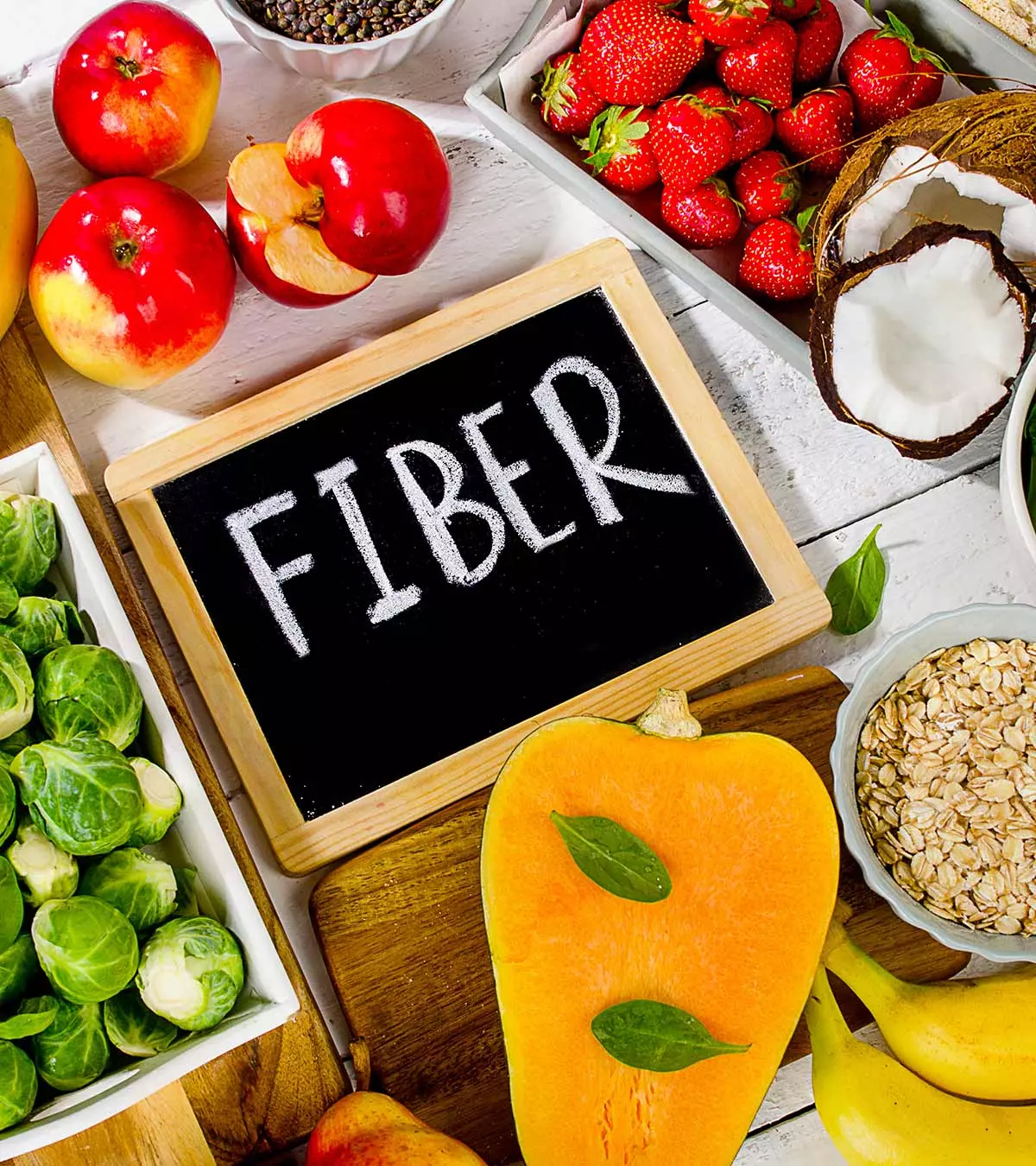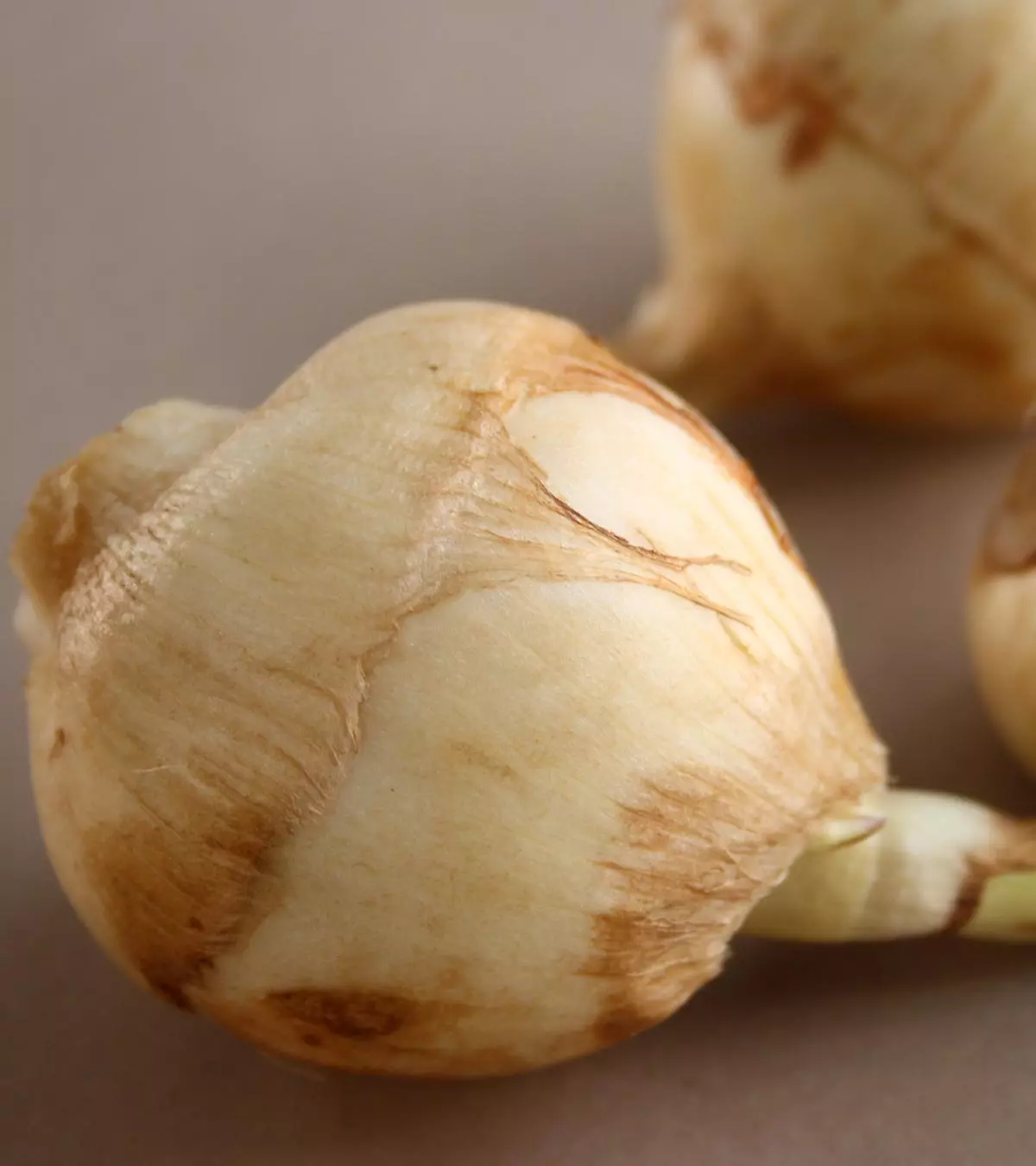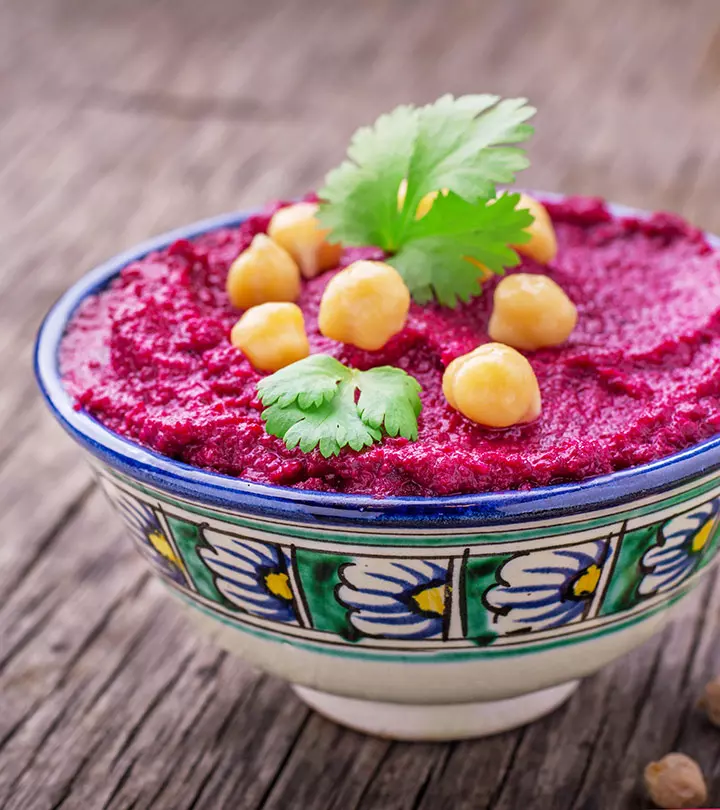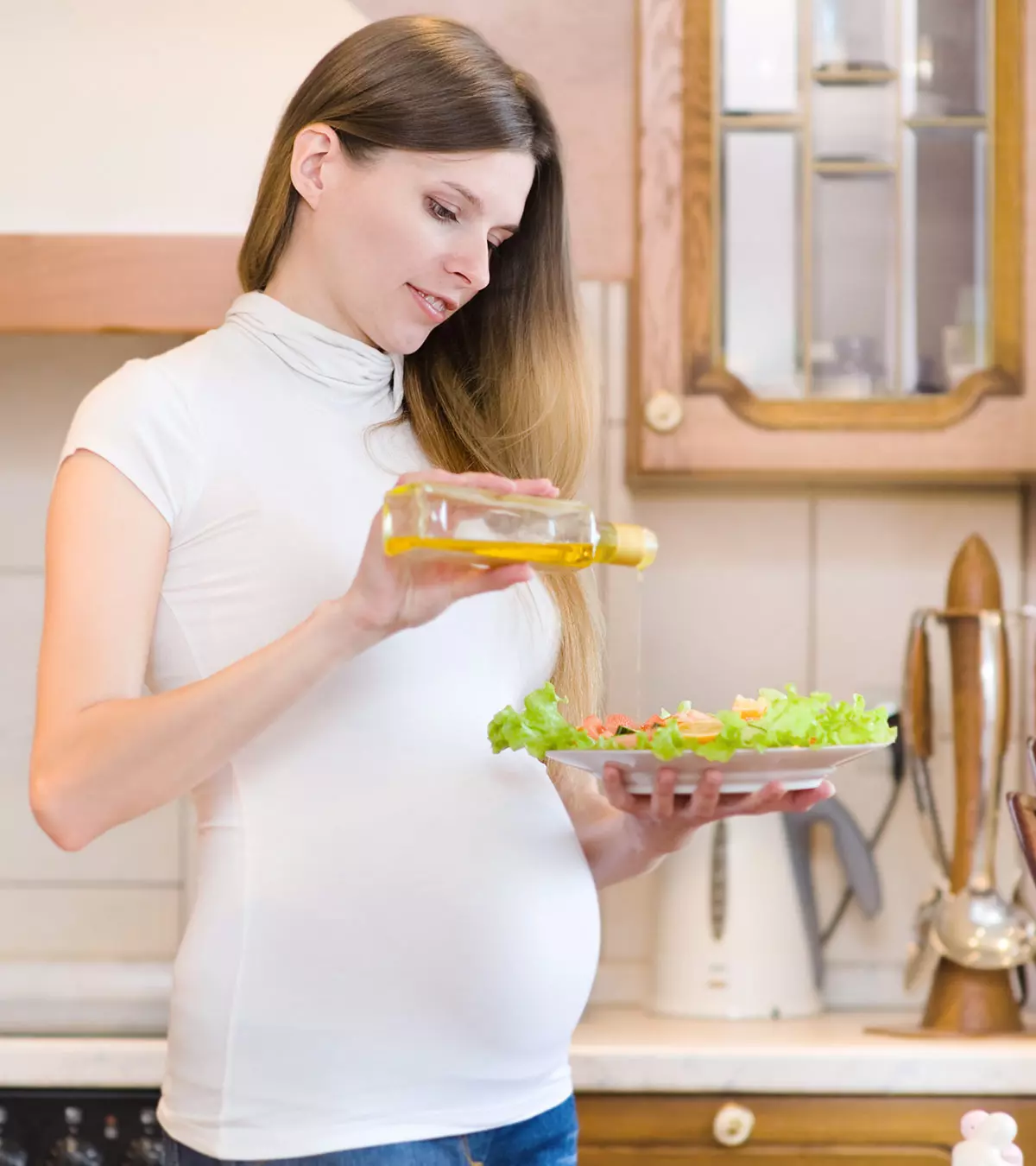
Image: Shutterstock

Olive oil is one of the most nutritious oils rich in healthy fats like mono and polyunsaturated fatty acids (MUFA and PUFA), vitamin E, and vitamin K. It also contains bioactive compounds and antioxidants that promote health. Thus, you might consider trying olive oil during pregnancy. But, is olive oil a safe choice for pregnant women and their developing babies? If you switch to olive oil, what benefits can it confer on you and your unborn baby? Keep reading as we tell you all about olive oil and its safe use during pregnancy.
Key Pointers
- Olive oil is considered the healthiest choice of oil for meals.
- It is rich in fatty acids and vitamins and offers health benefits.
- Olive oil consists of vitamin A, which prevents infections.
- It also supplies enough vitamin E and lessens stretch marks during pregnancy.
- Olive oil supports the development of the fetus’s reflexes and overall health.
Consuming Oils During Pregnancy
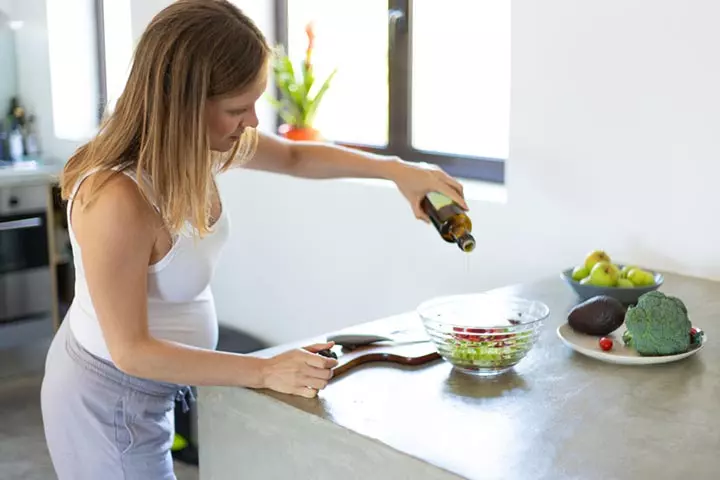
Image: Shutterstock
As much as it is important to focus on the food groups that you will be eating during pregnancy, it is also equally vital to understand the kind of oils that form a part of your meals.
- Olive oil is considered to be the best option among the rest, not only for pregnant women, but for everyone because it has many essential fatty acids.
- Adding olive oil to your diet has great benefits while you are pregnant.
- Let us understand more about olive oil, its benefits and the amount to be consumed during pregnancy.
Origin Of Olive Oil
Olive tree, which yields olive fruits, is a native of the Mediterranean region. Olive oil is obtained by crushing olives with a process known as maceration.
- Known by the botanical name of Olea Europaea, olive oil is a common ingredient in the Mediterranean diet, used in the cuisine of countries such as Spain, Greece, Portugal and Italy.
- Apart from being one of the prominent cooking oils in non-vegetarian and vegetarian diets, olive oil is used extensively in cosmetics and medicine.
- The oil, which adds a distinct flavor to food, has proven to have health benefits, making it popular around the globe.
5 Benefits Of Olive Oil During Pregnancy
Is olive oil safe during pregnancy? It is perfectly safe to consume olive oil to promote your maternal health. In fact, this oil contains many vitamins and useful forms of fatty acids which are important for both you and your baby growing in the womb. Below are some of the major benefits of olive oil:
1. Fights Infections:

Image: Shutterstock
The vitamin A content in olive protects your immune system while expecting and keeps you safe from infections. Vitamin A is also linked with healthy eyes and helps form enhanced vision in the growing baby.
2. Improves Reflexes In Babies:
According to a recent research, babies born to women who consumed olive oil during pregnancy had developmental advantages, as compared to those born to mothers who did not. The psycho-motor reflex of these babies was particularly better evidenced.
 Research finds
Research finds3. Healthy Fetal Development:
Olive oil has a high content of omega-3 fatty acids which are considered good for the heart. When consumed by pregnant women, the oil can have a positive role in fetal development.
- Some studies have shown that olive oil improves the functioning of the brain as well as the learning skills of young children post-birth.
- There is also a link between the consumption of olive oil by the mother and its influence on a child’s weight, height, and cognitive development.
 Did you know?
Did you know?4. Vitamin E:
Olives are not high in Vitamin E but due to their resistance to oxidation, this quantity is enough for pregnant women.
- Vitamin E aids in the growth of the baby preparing him to enter the oxygen-filled atmosphere.
- It enters the baby through breast milk and is especially good in case of premature babies helping their kidneys and pancreas function properly.
5. Reduces Stretch Marks:
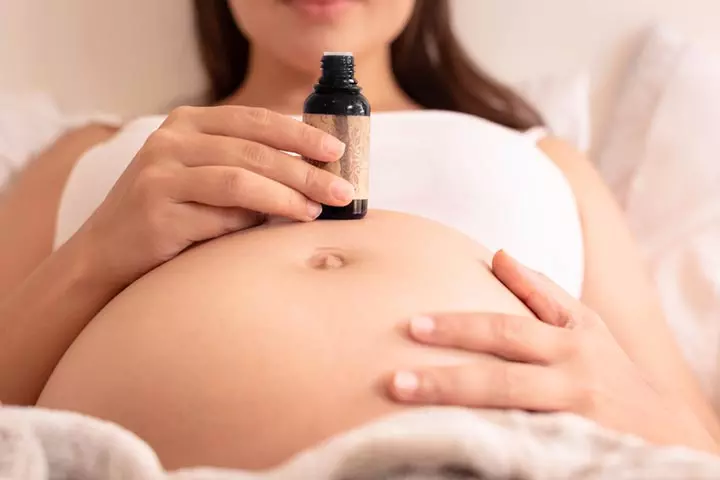
Image: Shutterstock
Use of olive oil for stretch marks during pregnancy really helps. The stretching of the pelvic muscles and expanding abdomen results in the formation of stretch marks when you are in your third trimester.
- Regular application of olive oil in pregnancy lightens these marks and in some cases even makes them disappear.
- Remember that it is not a magic potion that works overnight. The application has to be continued for a couple of weeks for the best results.
Safety Considerations When Using Olive Oil During Pregnancy
Olive oil is safe for oral and topical use during pregnancy. However, you must keep in mind certain factors:
- Use olive oil in moderation as overconsumption may lead to excess calorie intake, resulting in unwanted weight gain.
- Look for reputable brands and trusted sources to avoid buying adulterated olive oil.
- Preferably, choose extra virgin olive oil as they are less processed.
- Always store the olive oil in a cool, dark place.
- Make sure to use the oil before its expiry date.
- Make sure to do a patch test before using the olive oil externally.
- Look for any signs of adverse reactions after using the olive oil.
Frequently Asked Questions
1. Is olive oil harmful to a fetus?
No. Olive oil, when consumed in moderation, does not cause any harm to the fetus. However, you may consult your nutritionist to know the dietary requirements for safe consumption.
2. Does olive oil help with delivery?
Olive oil has significant benefits in shortening the duration of the second stage of labor. Moreover, it may also help reduce the number of times you require pain relief medications (1).
3. Can I use olive oil for massage during pregnancy?
Yes, olive oil can be used for massage during pregnancy. However, try a small patch test to rule out allergies. Ensure you massage gently, especially around the abdomen. It is advisable to have only a pregnancy massage expert offer it to you during pregnancy.
4. What are the benefits of using olive oil for perineal massage during labor?
Perineal massage using olive oil during the second stage of labor may reduce the need for episiotomy and may also reduce your chances of developing perineal injuries and experiencing perineal pain(2).
5. Can I drink olive oil for constipation during pregnancy?
Olive oil’s mild laxative effect may help relieve constipation during pregnancy. However, you must use it as a medicine only under the doctor’s guidance.
6. How much olive oil should I consume daily to remain healthy?
Adults are advised to consume 40 ml of olive oil per day, equivalent to 4 tablespoons, to get the necessary benefits (5). However, ensure you stay within the recommended daily fat consumption limits.
7. How to incorporate olive oil during pregnancy?
Apart from using externally and as a massage oil, you can also include oil in your pregnancy diet. Use it as a safer and healthier alternative for cooking oil, for salad dressings, for sautéing vegetables, and for drizzling overcooked dishes. However, make sure to consume olive oil moderately. You can also use olive oil as a moisturizing oil to promote skin hydration and alleviate dryness and itchiness during pregnancy.
With several health benefits, olive oil during pregnancy can be one of the best oils to include in your diet. Olive oil may be a good choice if you wish to protect yourself and your baby while ensuring a healthy heart and brain development. So if you are still wondering about its safety, don’t worry. As long as you are consuming a moderate amount of olive oil during pregnancy, there should not be any concern. Therefore, consult your ob/gyn to know about the recommended amount to soak in all of its benefits.
Infographic: Advantages Of Using Olive Oil In Pregnancy
Olive oil is a fruit oil that comes from the maceration of olives and is an important part of global cuisine. It is renowned for its robust flavor and health benefits, making it one of the safest oils for consumption, even during pregnancy. This infographic provides the key benefits of using olive oil during pregnancy.
Some thing wrong with infographic shortcode. please verify shortcode syntaxIllustration: Olive Oil During Pregnancy and Its Benefits
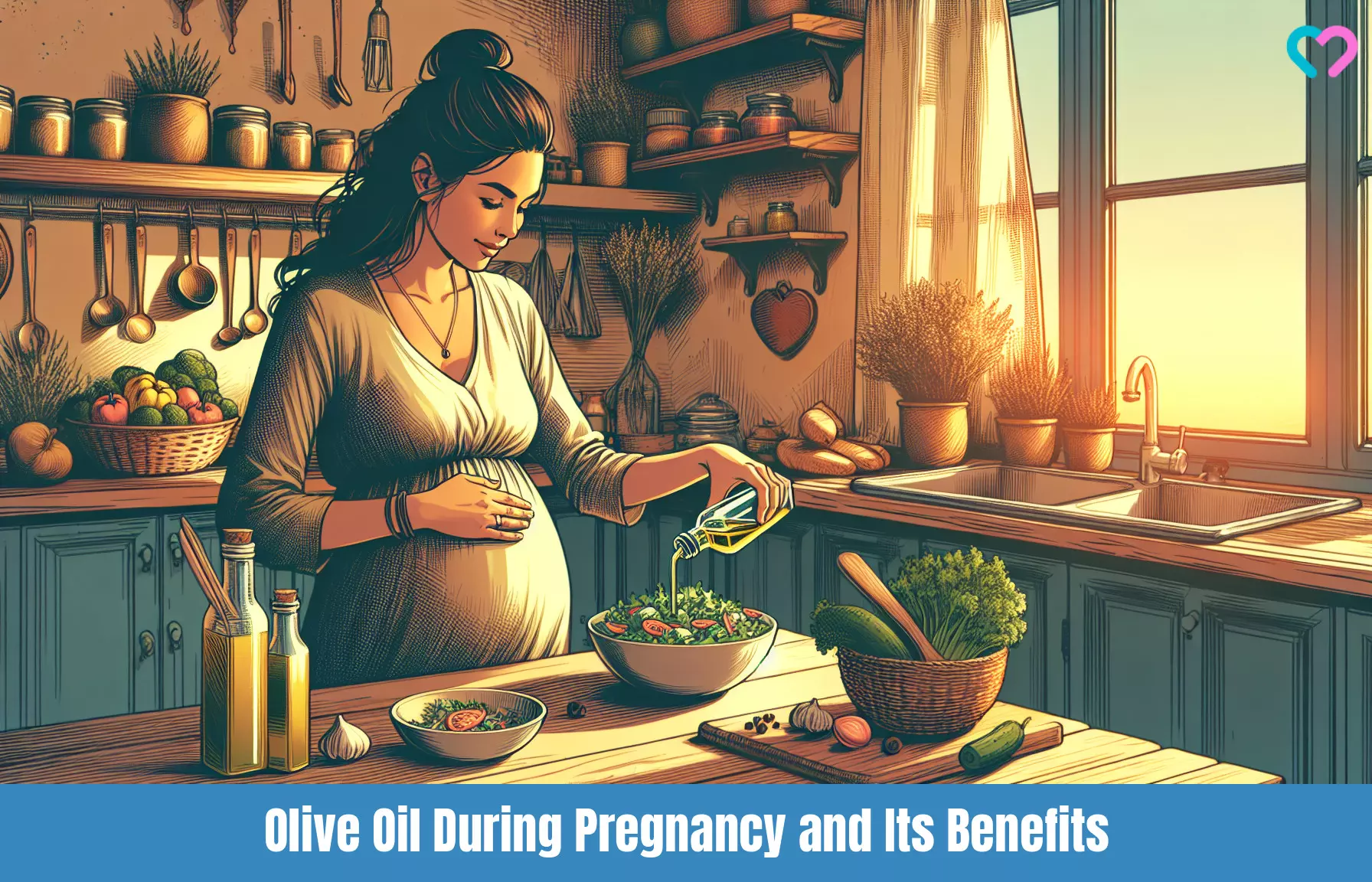
Image: Dall·E/MomJunction Design Team
References
- Effect of applying extra virgin olive oil versus obstetric gel on the second stage of labor outcomes among primiparous women
https://www.researchgate.net/publication/336603196_Effect_of_applying_extra_virgin_olive_oil_versus_obstetric_gel_on_the_second_stage_of_labor_outcomes_among_primiparous_women - THE EFFECT OF PERİNEUM MASSAGE WİTH OLİVE OİL ON PERİNEUM INTEGRİTY AND DURATİON OF SECOND PERİOD OF DELİVERY
https://classic.clinicaltrials.gov/ct2/show/NCT04157777 - Jose A Castro-Rodriguez et al.; (2010); Olive oil during pregnancy is associated with reduced wheezing during the first year of life of the offspring; Pediatric pulmonology.
https://pubmed.ncbi.nlm.nih.gov/20306538/ - Dalmiro Gomez Ribot et al.; (2025); An extra virgin olive oil-enriched diet improves maternal, placental, and cord blood parameters in GDM pregnancies.
https://pubmed.ncbi.nlm.nih.gov/32447799/ - Four tablespoons of olive oil a day for good health
https://oliveoilsfromspain.org/olive-oil-news/four-tablespoons-olive-oil-day-good-health/
Community Experiences
Join the conversation and become a part of our nurturing community! Share your stories, experiences, and insights to connect with fellow parents.
Read full bio of Reda Elmardi
Read full bio of Rebecca Malachi
Read full bio of Swati Patwal
Read full bio of Dr. Joyani Das







